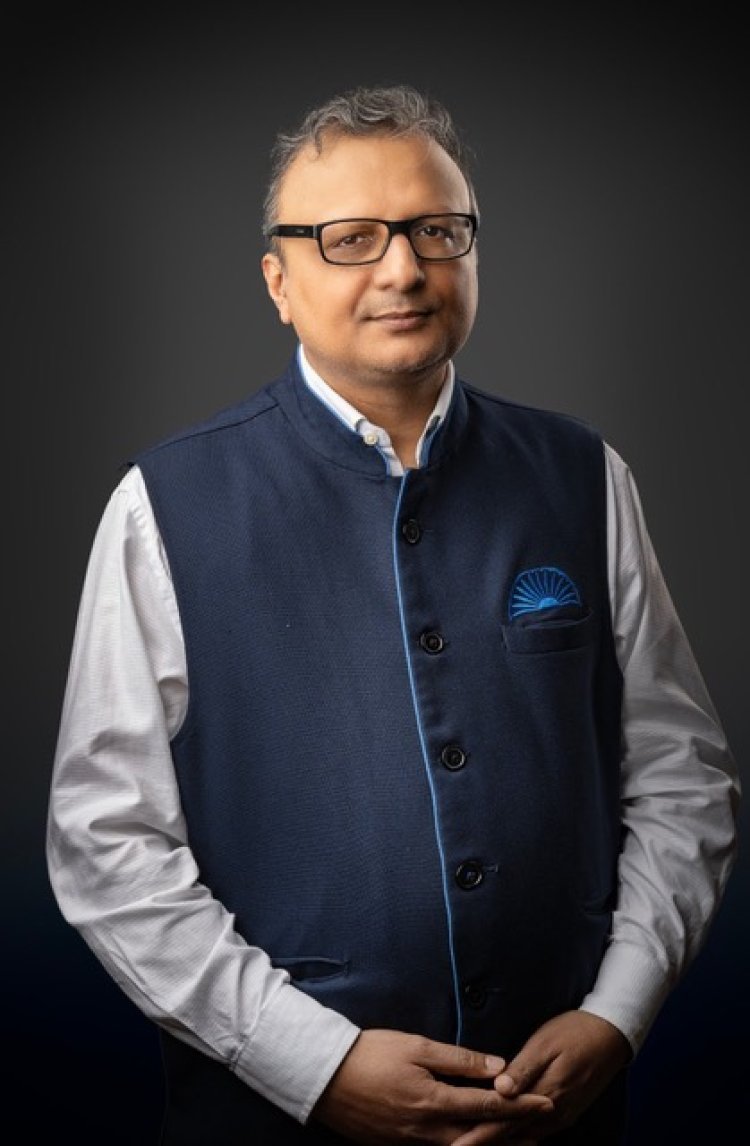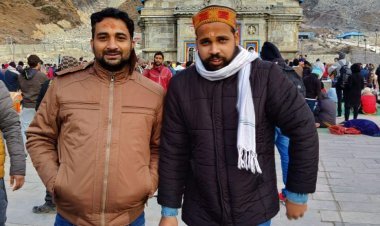Indian Innovator Named to Prestigious ATSC Board Business Advisory Council, Paving the Way for Global Broadcast Standards Evolution

In a significant moment for India’s technological leadership on the global stage, Shashi Shekhar Vempati, former CEO of Prasar Bharati, has been invited to join the esteemed ATSC Board Business Advisory Council. This nomination marks a pivotal opportunity for India to contribute to shaping the future of broadcast technology and Direct-to-Mobile (D2M) Broadcasting innovations globally.
ATSC, the Broadcast Standards Association, is a multinational standards development organization whose mission is to empower the broadcasting ecosystem through innovation and collaboration.
Vempati’s appointment aligns with the global adoption of ATSC 3.0 standards, known for revolutionizing next-generation broadcasting by integrating broadband and broadcast technologies. As a member of the ATSC Business Advisory Council, Vempati will contribute strategic insights to bridge business and technology sectors, expanding the scope of ATSC standards across a range of industries and geographies.
A Game-Changer for Viksit Bharat
India, already recognized for its tech-driven innovation and burgeoning mobile-first ecosystem, stands on the cusp of a broadcasting revolution with emerging technology that allows mobile phones to receive broadcast signals directly. This has the potential to open up unprecedented access to media and emergency services, even in the most remote parts of the country while enabling Educational Media and Skilling to realise the developmental goals of a Viksit Bharat as envisioned by Prime Minister Narendra Modi.
With Vempati’s participation on the Business Advisory Council, India now has a strong voice to influence the future technology evolution of international broadcast standards. With the ATSC 3.0 standard offering a transformative framework for seamless multimedia delivery, India’s vast population can leverage this technology to enhance education, digital inclusion, and disaster management services, further aligning with Prime Minister Narendra Modi's 'Digital India' vision.
Global Impact: From the US to South Korea, Brazil to the Caribbean
ATSC 3.0 is rapidly gaining momentum worldwide, from the United States and Canada to South Korea, Brazil, and the Caribbean. The recent decision by Brazil to adopt the ATSC3 standard for broadcast services, based on extensive testing of multiple systems, paves the way for a Broadcast Technology QUAD of sorts between four major democracies across the globe to come together on leveraging broadcast resilience for the greater public good.
India's thriving technology ecosystem, known for its IT prowess, innovation in telecommunications, and manufacturing capacities, is well-positioned to contribute significantly to the deployment and enhancement of ATSC 3.0 technologies globally. The cross-pollination of India’s talent and the global broadcasting ecosystem promises not only a win for India but for the entire world in line with Prime Minister Modi’s twin visions for an Aatmanirbhar Bharat and ‘Design in India for the World’.
By driving discussions on the business and policy considerations for adopting these technologies, Vempati is expected to bolster India’s positioning as a critical partner in global media technologies, opening doors for collaboration across various industries, including media, telecommunications, and disaster management.
About ATSC
ATSC, the Broadcast Standards Association, is an international, non-profit organization developing voluntary standards and recommended practices for digital terrestrial broadcasting. ATSC member organizations represent the broadcast, broadcast equipment, motion picture, consumer electronics, computer, cable, satellite, and semiconductor industries. ATSC also develops digital terrestrial broadcasting implementation strategies and supports educational activities on ATSC standards.
About Shashi Shekhar Vempati
Shashi Shekhar Vempati is the former Chief Executive Officer, CEO of India’s Public Broadcaster, Prasar Bharati. A Technocrat, Shashi serves in various Leadership roles advising Global Media Organisations, Startups, Public Institutions and the Government of India across Technology, Media and Public Policy landscape. Shashi is the co-founder of the DeepTech for Bharat Foundation, which runs the 'AI for India' forum for developing an Artificial Intelligence ecosystem in India. He also serves as the Chairperson of Apex Advisory Committee for Science & Technology Communication at the Department of Science and Technology (DST), Govt of India and is Chairperson of Experts Committee of University Grants Commission (UGC) on Educational Media. He serves as a Member of Indian Institute Mass Communications Society (IIMC) Society, Member of the Board of Jamia's AJK Mass Communication & Media Research Center (AJKMMRC) and Member of the Board at Broadcast Audience Research Council (BARC).
He was the CEO of Prasar Bharati, India's Public Broadcaster (Doordarshan and All India Radio) between 2017-2022 and concurrently served as the CEO of Rajya Sabha TV, India's Parliamentary TV Channel between 2017-2019. He was CEO of Niti Digital(2014-2016), Vice President of Asia Pacific Broadcast Union(2021-2022), Vice President of IBDF (2019-2022), Member of Board of BARC (2017-2022), Chairperson of External Experts Group at UGC (2023) and Member of the ICWA Governing Body. Shashi's key contributions to Technology and Public Policy in India include key reforms to the Public Broadcasting and Media sector, revising the Television Ratings Guidelines in India and a roadmap for transforming Educational Media Research Centres across India. Shashi is the author of the book 'Collective Spirit Concrete Action - Mann ki Baat and its influence on India' published by Rupa Publications to mark the hundredth episode of Prime Minister of India, Narendra Modi's monthly radio program 'Mann ki Baat'.


















